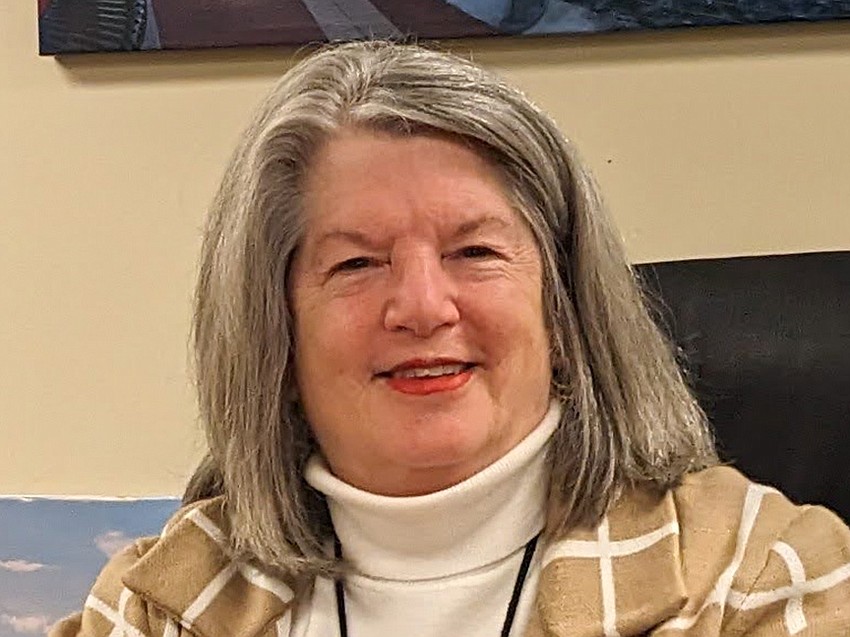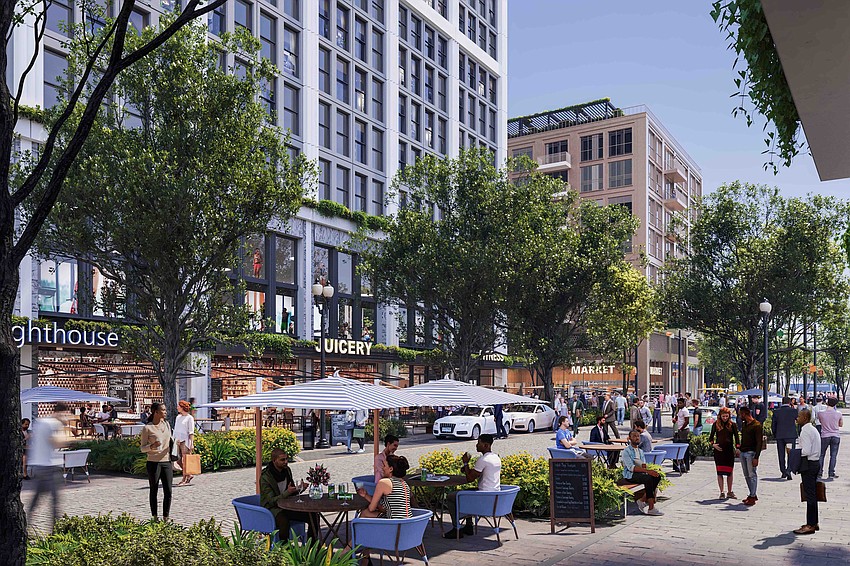
With the possible abolishment of the Downtown Investment Authority hanging in the balance, DIA CEO Lori Boyer stood before a special Jacksonville City Council committee May 13 to chart her organization’s record in leading Downtown revitalization.
In the first meeting of the Special Committee on the Future of Downtown, Boyer gave a presentation on the DIA’s successes, failures and challenges since its founding in 2012.

The presentation came after the committee’s vice chair, Rory Diamond, said he hoped the committee’s focus would be to either do away with the DIA or give it more resources and independence so that it could do its work more efficiently.
Council President Ron Salem launched the committee to recommend ways to spur progress in Downtown redevelopment, which he described in a memo as “at best, debatable.” His assignments to the panel include examining the DIA and looking at what other cities are doing to redevelop their downtowns.
Diamond said that under the current structure, in which the DIA has its own board but requires Council approval for some of its actions and works with city departments to get projects up and running, “I see a government that’s in the way” of developers trying to invest in Downtown.
In her presentation, Boyer said the taxable value of Downtown properties had risen more than 100% since 2012 to a value of $2.49 billion in 2024. She said that despite a decline in office values during 2023, Northbank properties increased that year by 15.9% compared to an overall city rate of 12.9%.
Boyer said that when the DIA was created in 2012, property values Downtown had been declining for nearly five years and there was no new construction during that time.
In 2013, she said, new private investment in Downtown amounted to $5.08 million, with most of that amount coming from a $3.5 million renovation for the JAX Chamber. Other projects included a $364,000 Family Dollar store and a $689,000 McDonald’s.
“I think things have changed a bit,” she said.

Boyer said that 35 new retail businesses had opened Downtown in the past eight years, and the DIA had approved eight new restaurants in the past six months. After adding no new residential units from 2008 to 2013, she said, Downtown had grown by 2,500 residential units since then, with another 1,000 units under construction today. The Downtown residential population has increased to nearly 8,000 from 3,700 in 2012.
She identified four “catalytic” projects that have either been completed or are under construction, including the Four Seasons hotel and office complex under construction near EverBank Stadium and the Whole Foods-anchored One Riverside mixed-use project under construction on the site of the former Florida Times-Union in Brooklyn.
The DIA, which serves as the lead organization for economic development in Downtown, is overseen by nine board members who are nominated by the mayor and Council president and are confirmed by the Council. The structure is designed to establish continuity in the revitalization effort as opposed to making it a function of a city department that would be directly subject to changes in direction by mayors and Council members.

The meeting came two days before Boyer, who has led the DIA since 2019, is expected to be given a contract extension and raise by the DIA board. Boyer said she gave the board a commitment to serve two more years, with a recommendation that she spend several months helping onboard her successor.
Jim Citrano, chair of the DIA board, spoke in support of Boyer and the DIA staff. He also noted that the DIA’s bylaws require board members to have experience in expertise in specific areas, including real estate and finance.
Citrano said the result is a board that can understand details of complex agreements involving city incentives for investors.
“I believe that having a board of citizens who have the expertise and commitment to dive in and roll our sleeves up and understand the economics of these deals that are coming before us is critically important,” he said.

In addition to the committee members, attendees of the May 13 meeting included Council members Jimmy Peluso, Matt Carlucci and Michael Boylan. Among audience members were Downtown Development Review Board chair Matt Brockelman, the DIA staff, JAX Chamber president and CEO Daniel Davis and Downtown Vision Inc. CEO Jake Gordon.
Davis told the committee that Downtown redevelopment was a critical need for Jacksonville to attract talent to its workforce. He said young people coming out of college prefer to live in an urban environment versus suburbia.
“Right now, the (approval) process is too long,” he said. “It should never be more advantageous to develop in a suburb than it is in your Downtown.”
Davis argued for the DIA to be given more autonomy and more funding.

“We believe that you appoint great board members, they hire a great CEO and you stand back and let them go to work,” he said.
Committee member Joe Carlucci, whose District 5 includes the Downtown Southbank, said he hoped the committee would focus on simplifying approval processes, making outcomes more consistent and predictable, and creating short- and long-term stability.
Carlucci signaled that resolving the issue could involve adding to other city departments in addition to the DIA, such as bringing aboard attorneys in the Office of General Counsel to reduce the time needed to legally vet agreements. Public Works may also need more project managers to make development move faster, he said.
Boyer said it normally takes two to three years to complete design work, permitting and contracting of a project.
Alex Sifakis, president of JWB Real Estate Capital, praised the DIA for helping draw developers of the caliber of Gateway Jax CEO Bryan Moll. Moll is heading a partnership that includes JWB in the Gateway JAX project, a mixed-use development in the NorthCore district that includes a $500 million investment in its first phase and could grow to more than $2 billion.

“My experience the No. 1 thing that would make a difference in Downtown Jacksonville is more resources for Downtown,” he said, recommending the addition of as many as six well-funded positions to the DIA and an increase in staff for the Office of General Counsel and Public Works.
Boyer said challenges include the inflation-fueled increases in costs of construction and financing, and the post-COVID increase in office vacancy, with many companies still allowing remote work for some or all of their employees.
Kevin Carrico, the special committee’s chair, said he expected the committee to meet at least until August before making recommendations. He said he planned to invite Downtown stakeholders to share ideas about how to create the “vibrant, bustling Downtown we all want to see.”
“We don’t just want a slow creep, we want to see things happen,” he said. “Taxpayers deserve to be able to come Downtown, have nice hotels and restaurants 365 days a year, just not on game or concert nights.”